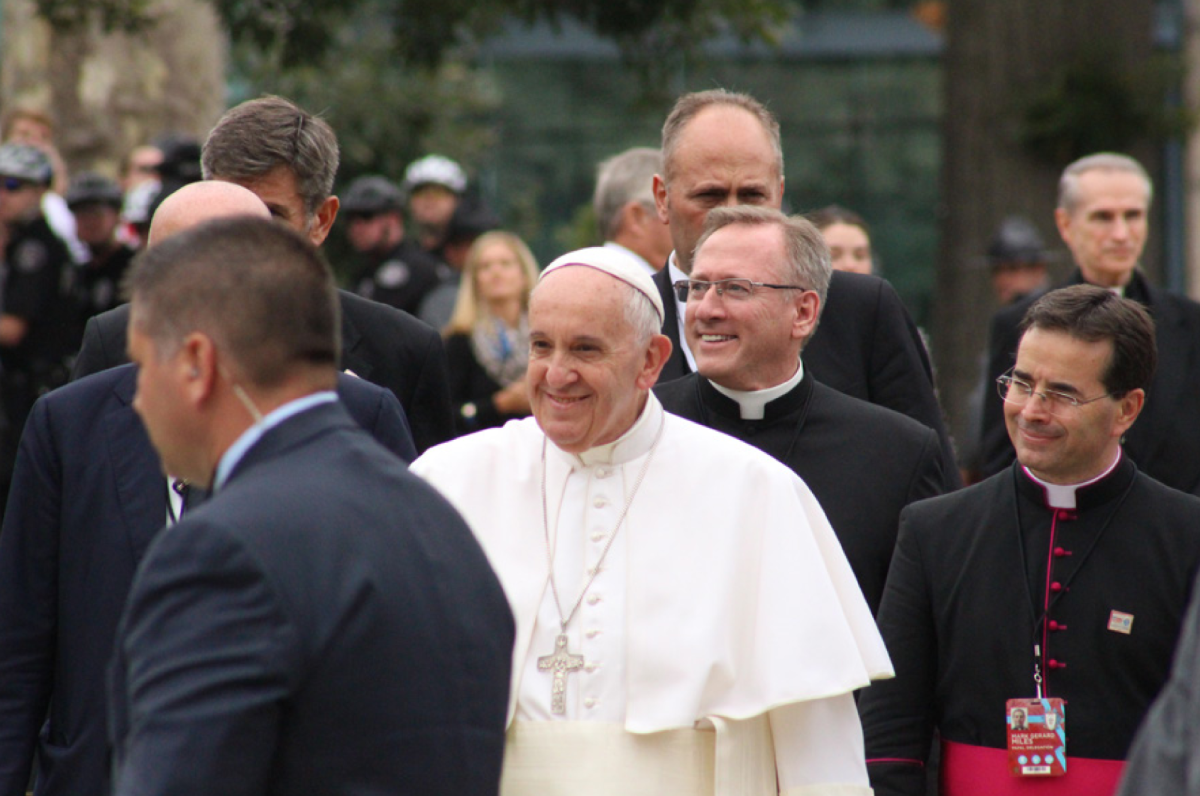Nearly one-third of St. Joe’s students who participated in the Campus Climate Study released in October expressed difficulty affording food.
“This has been on our radar since the summer, and we’ve been looking into this ever since,” said Jason D’Antonio ’19, University Student Senate president. “I’ve seen a rise in concern about the matter from campus leaders across the nation, and many senators have talked about this in their platforms too.”
Feeding America, a national network of nonprofit food banks, reports that almost half of its 46.5 million clients in college have to choose between expenses like tuition, books, rent and food. About one fifth of this population has had to make these kinds of choices for at least a year.
Low food insecurity is common among college students, who might reduce their variety of foods, consume a low diet quality, or go hungry in order to pay bills, according to the United States Department of Agriculture (USDA), which defines food insecurity as “a household-level economic and social condition of limited or uncertain access to adequate food.”
Students at St. Joe’s who are food insecure currently have scant institutional options to turn to for assistance.
Elizabeth Rihl Lewinsky, director of financial services and compliance in Financial Aid, said her office is limited in how it can help students.
“Certainly, in the case of an off-campus student who wants to purchase a meal plan and may want to borrow an additional loan to do so, we can adjust their annual cost of attendance to allow this and will assist them through the process of applying for the loan,” Lewinsky said.
Becki Scola, Ph.D., associate professor of political science, conducts research on the topic of food insecurity in Philadelphia, so she was not surprised when the Campus Climate Study revealed food insecurity as an issue for students.
“There is a substantial and growing area of research that clearly documents the rising rate of food insecurity among college students,” Scola said. “The results of our Climate Study suggest that our students are no different from other college students across the nation.”
In a political science class titled Politics of Food and Anti-Hunger that Scola is teaching this semester, students were given a weeklong simulation where they were only allowed to spend $5 a day on food.
“The exercise was only for a week which was hard enough,” Lucia Casaleno ’19 said. “I couldn’t imagine doing it constantly but that’s the reality.”
Casaleno, a food marketing major, said she hopes to apply the lessons from the class in her career. One of those lessons is how many college students are food insecure, including St. Joe’s students.
“As far as it being a reality for SJU students, college students being food insecure is one of the most masked groups of people who are struggling,” Casaleno said.
Associate Dean of Humanities Shawn Krahmer, Ph.D., who on Oct. 11 attended a forum on the results of the Campus Climate Study, said hearing that St. Joe’s students struggled with food insecurity came as a surprise. But Krahmer said based on her preliminary research, the university should be able to put something in place to help these students.
“It did seem that it would be relatively easy to set up a food pantry somewhere on campus,” Krahmer said. “Or to collect donations towards providing Hawk Cash for use in local grocery stores or declining balance cards for campus dining services to local students who were eligible for food subsidies.”
Cary Anderson, Ed.D., associate provost and vice president of Student Life, said the university has begun discussing ways to address food insecurity on campus.
“We’ve had preliminary conversations regarding how best to address the issue and have been gathering information on programs at other Jesuit institutions,” Anderson said. “I anticipate a committee being formed in the near future to devise a formal plan.”
D’Antonio said after looking at efforts being made at the University of Kentucky and University of San Diego to establish food banks, he plans to propose something similar at the upcoming City 6 Conference, which includes the University of Pennsylvania, St. Joe’s, Villanova University, Drexel University, Temple University and La Salle University.
“Expect more to come from us on this,” D’Antonio said.
Ultimately, Scola said, a systemic approach to food insecurity at St. Joe’s is key.
“There are two ways that SJU could effectively respond,” she said. “The first is to meet the immediate needs of students who are food insecure by providing them with food assistance, either through a meal plan or some other resource for securing food on a consistent basis. The second is to address the larger issue of economic need, which is the primary cause of food insecurity–lack of money. Both responses are needed.”









































David Donnelly • Nov 13, 2018 at 8:02 pm
I think you have a data error in one paragraph. The story says, “…almost half of its 46.5 million clients in college have to choose between expenses like tuition, books, rent and food.” According the National Center for Education Statistics, there are 19.9 million students enrolled in college. https://nces.ed.gov/fastfacts/display.asp?id=372
Other than that, an interesting article and topic to cover.